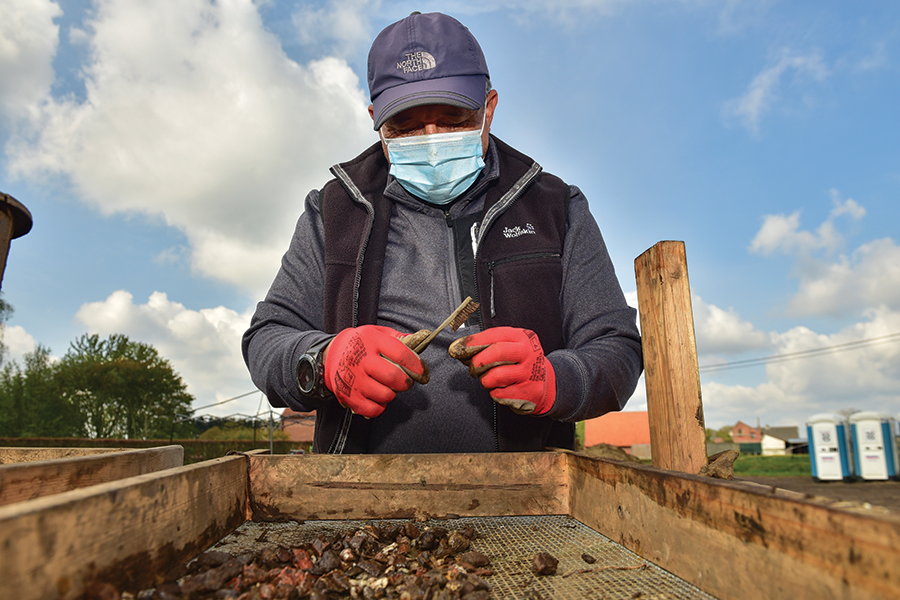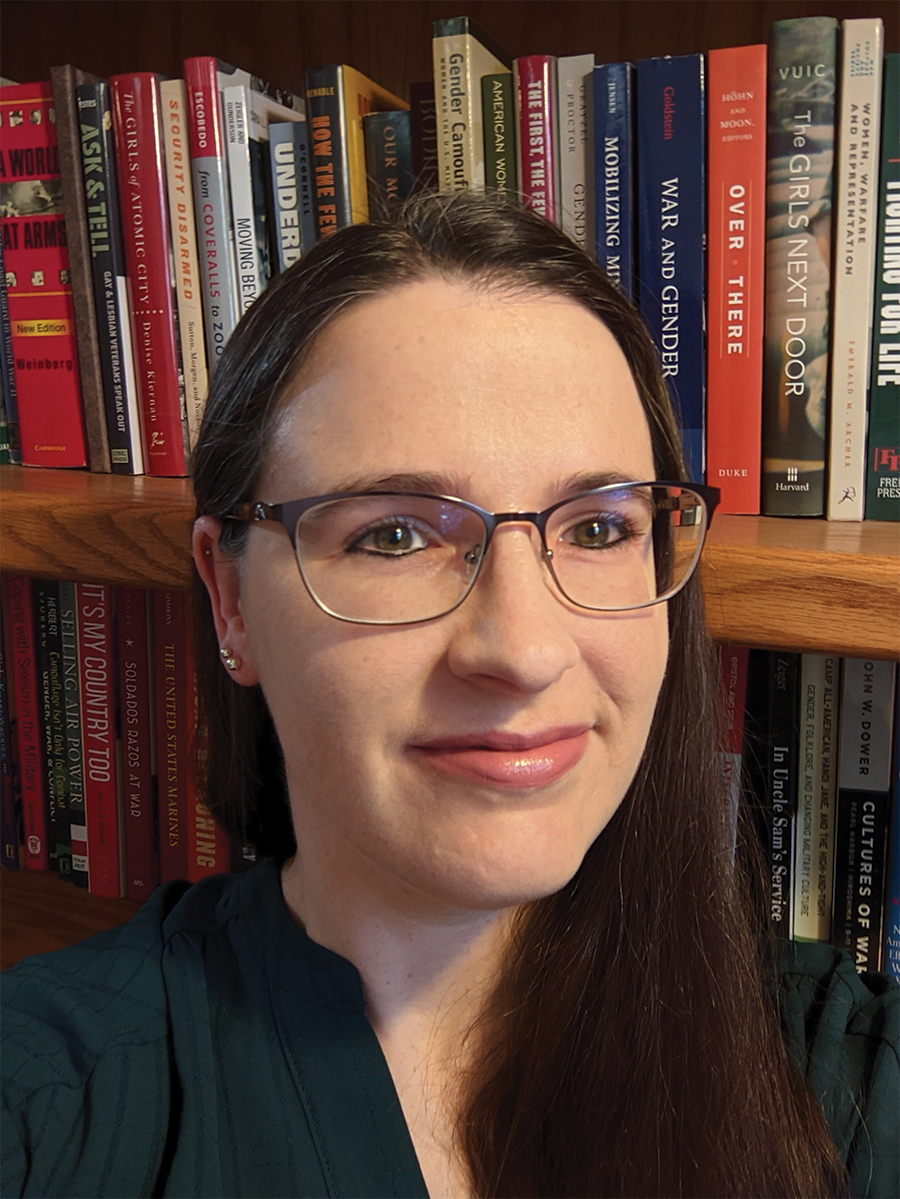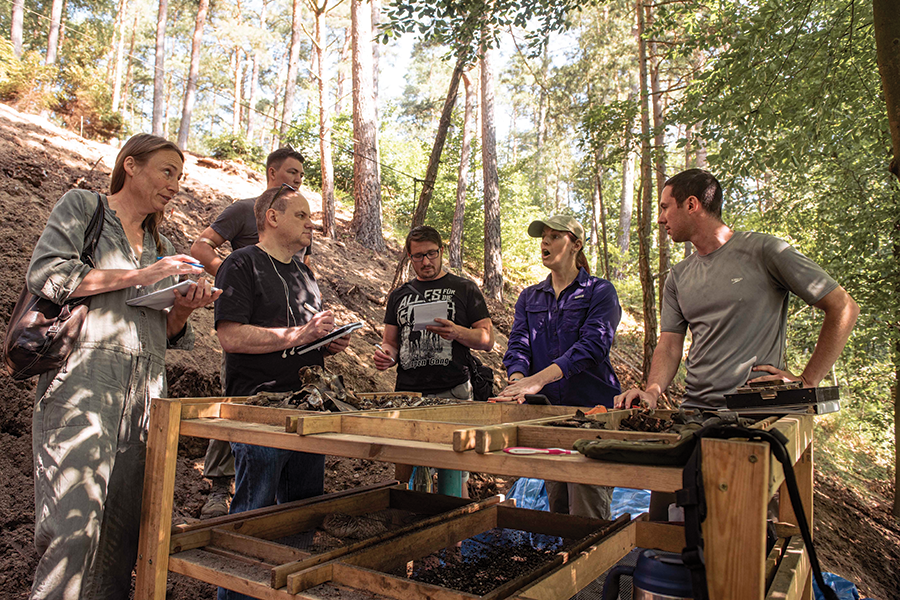Unfinished Histories
Alumna Sarah Patterson uses research expertise to help identify missing World War II personnel


The past has always been part of Sarah Patterson’s future.
“I think there are several motivations that drive me to focus on history,” said the two-time Florida State history alumna. “In part, I’m very curious. Doing historical research allows me to ask questions and then go look for answers. It’s an unending process of learning.”
Patterson’s curiosity about the past drew her to graduate studies at FSU. She first entered the field while earning a bachelor’s in anthropology at the University of Tennessee in 2006 and a master’s in the subject from the University of West Florida in 2013. She also holds a bachelor’s in English from Tennessee.
“I think history really became my passion when I started to understand that it was more than just a collection of facts that happened to people a long time ago,” Patterson said. “The choices people made in the past are still impacting the present. Studying history allows us to understand ourselves as well as our ancestors.”
When she arrived in Tallahassee, Patterson’s work focused on the intersection of gender and military history. She quickly developed an interest about the experiences of women in the U.S. military, and her dissertation covered the impact of gender on the Marine Corps and its servicemembers from World War I through the Korean War.
“The further I delved into my research, the broader my interest in military history became, and my current research has branched off in a number of other directions as a result,” she said.
The education Patterson received at FSU gave her the chance to pursue a career that incorporated her interests. Today, her research is done for SNA International, which provides scientific expertise and the ability to manage all elements of forensic science operations, biometric programs, and mass fatality response planning programs. Patterson got her job with SNA after earning her doctorate from FSU in May 2019.
SNA is a contractor for the Defense POW/MIA Accounting Agency, DPAA, which helps account for missing U.S. military personnel around the world. Patterson is a subject-matter expert and disinterment historian who concentrates on identifying soldiers and other personnel from the World War II era.

“My time at FSU gave me a strong background in research and writing that has served me well in my current position,” Patterson said.
Patterson’s post-graduation path wasn’t one she pictured, but her love of research, American history and helping people made the SNA position an unexpected fit. That service aspect underpins important job duties including answering questions from families at DPAA meetings, providing updates on the agency’s work, and letting people know the status of their loved one’s case.
“One of the most satisfying parts of my job is getting to speak with these people and hear about the servicemembers we’re looking for,” Patterson said. “While I don’t do traditional teaching in my current role, I do have the opportunity to flex those skills working with families and the public.”
Her research sometimes involves resources most people don’t even know exist. One example is the American Graves Registration Service, or AGRS, the agency in charge of recovery and repatriation of remains of service members killed during and immediately after World War II. Knowing where to start and what assets are available are skills she honed at FSU.
“Research may sound pretty straightforward on the surface, but it takes creative problem-solving to locate new sources that pertain to your topic,” Patterson said. “My FSU education taught me where and how to look, as well as how to analyze the sources I found.”
Suzanne Sinke, director of graduate studies in FSU’s Department of History, served as Patterson’s dissertation chair. She saw Patterson at work on her way to earning her Ph.D. and was impressed with her ability to accomplish goals with peers and on her own.
“Her friendly demeanor, ability to get things done, and capacity for bringing people together meant that, to complement her research and writing prowess, she had a tremendous set of personal skills,” Sinke said. “She embraced what our graduate program offered, excelled, and walked from the graduation stage into an excellent position that recognized and valued what she had to offer.”
While many think of historians mainly as educators focused on past events, for Patterson, history is future focused: Historians serve the public, whether through recovery research, historic preservation, or by placing the past in context to facilitate understanding of the present.
“It’s our job as historians to help people understand the origins of the social issues we face today so that we can better move forward with trying to address and fix them,” she said.
